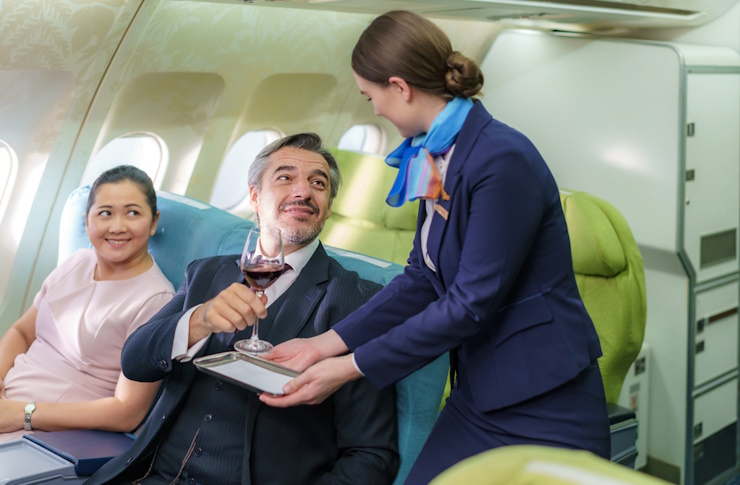Flight Attendant Jobs: Roles, Paths, and Where the Market Fits
Working in aviation as a flight attendant can combine travel, service, and strict safety responsibilities into a career that fits many personalities. Whether you’re drawn to commercial routes or the distinct world of private jet service and luxury travel, understanding job types, the daily realities, and realistic expectations helps you make informed choices. This article gives an overview of roles, employer types, and practical steps without promising current openings.

Aviation: what to expect in the field
Aviation is a complex industry shaped by safety regulations, customer service standards, and operational logistics. Flight attendants operate within that structure: they follow airline or operator procedures, complete required safety briefings, and coordinate with cockpit crews and ground staff. Shifts can be irregular, crossing time zones frequently. The work rewards those who enjoy travel and people-focused service, but it also demands flexibility, strong situational awareness, and consistent professionalism.
Flight attendant duties and skills
Core duties for a flight attendant include passenger safety briefings, emergency preparedness, cabin checks, and delivering onboard service. Soft skills—clear communication, cultural sensitivity, and conflict resolution—are as valuable as technical skills like first aid and safety equipment operation. Training typically covers evacuation procedures, crowd management, and regulatory knowledge. Employers look for candidates with calm demeanors, reliable punctuality, and the ability to work as part of a small, tight-knit team under variable conditions.
Private jet roles: how they differ
Private jet crews often work in smaller teams and provide highly personalized service for fewer passengers. Responsibilities on a private jet can include bespoke catering, bespoke itineraries, and greater discretion and confidentiality. Schedules may be more irregular but also more flexible, depending on client needs and charter patterns. Private jet work frequently requires adaptability to diverse aircraft types and closer collaboration with corporate flight departments or charter brokers rather than large airline operations.
Luxury service standards on board
Luxury travel places additional emphasis on refined service, privacy, and attention to detail. Flight attendants in the luxury segment may manage fine dining presentation, specialized amenity setups, and culturally tailored experiences. Training for these roles often highlights etiquette, multi-course service, and anticipating high-net-worth client expectations. While the core safety responsibilities remain unchanged, the guest experience standards and professionalism expectations are elevated in the luxury environment.
Career paths and professional development
A flight attendant career can progress vertically—seniority within an operator, lead or purser roles—or laterally across aviation segments, such as moving from regional airlines into major carriers or into corporate and private aviation. Professional development includes recurrent safety training, language skills, and certifications like CPR. Keep in mind this overview is general career guidance and not a list of active job openings; hiring cycles and requirements change frequently by employer.
Before the following illustrative provider list and table: this is a representative set of employer examples from commercial, private jet, and luxury sectors to show the types of organizations active in the field. This table is illustrative only and does not imply current vacancies or any guarantee of hiring. Always verify current hiring status on each provider’s official careers page and follow their published application processes.
| Provider Name | Services Offered | Key Features/Benefits |
|---|---|---|
| Delta Air Lines | Scheduled commercial passenger service | Large network routes, extensive training programs, unionized seniority systems |
| American Airlines | Scheduled commercial passenger service | Wide domestic and international network, formal recruitment channels |
| United Airlines | Scheduled commercial passenger service | Global route structure, comprehensive safety and service training |
| NetJets | Fractional private jet operator | Private jet travel, personalized service, career paths in corporate aviation |
| VistaJet | Global private jet charter | Bespoke charter services, luxury-focused client experience |
| Flexjet | Fractional ownership and charter | Diverse fleet, emphasis on premium in-flight service |
| Wheels Up | Membership-based private aviation | On-demand charter and membership programs, luxury service offerings |
This table lists recognizable employers across commercial and private aviation to illustrate the variety of organizations where flight attendants can build experience. It should not be interpreted as a source of live job listings. Confirm any hiring opportunities directly with each provider.
Conclusion
A flight attendant job can be professionally rewarding for those who value travel, service, and teamwork within aviation’s safety-first framework. Opportunities differ significantly between commercial airlines, private jet operators, and luxury services—each with distinct schedules, training expectations, and service cultures. Use the employer types and role descriptions above as a framework for research, and always verify current hiring practices and openings directly with organizations of interest.






